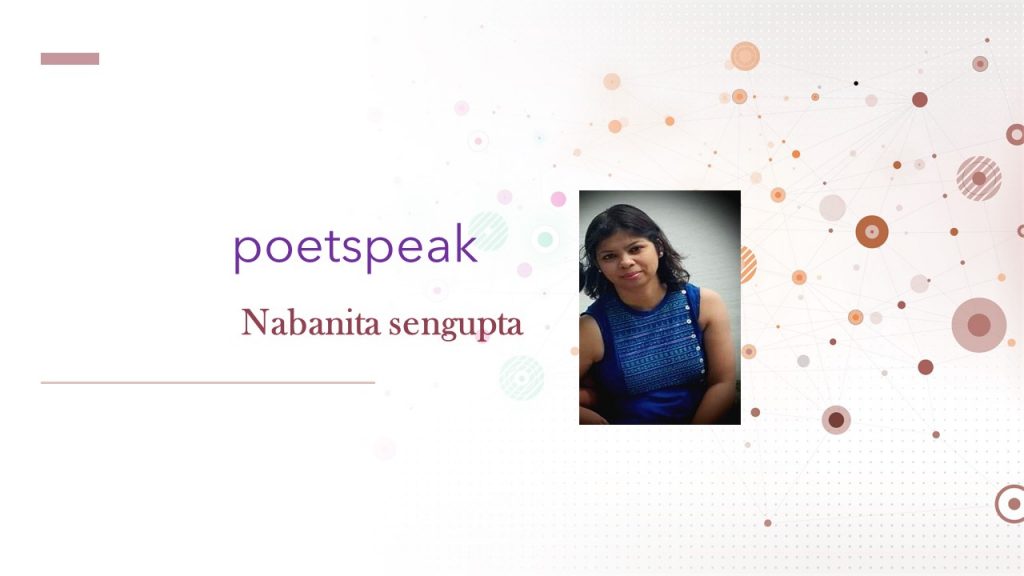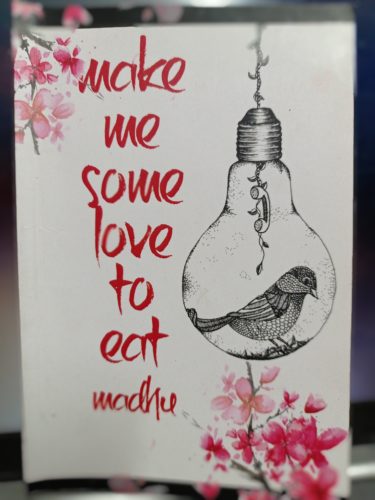What is love poetry? How does one define love? Which emotions, relationships, actions, words, or gestures determine love? Many of these questions popped up as I started reading a beautiful, slim volume of poems, make me some love to eat, by Madhu Raghavendra, published by the Red River. These delectable poems dished out in an aesthetically pleasing volume, have kept me arrested for the past few days. These are poems that one would wish to read and keep going back to them time and again. The intriguing title of the anthology, suggests a feast. And here is a feast of words that takes one along a taste of a wide range of emotions, in a journey of love. The meaning of the word love is layered and one with a wide range of possibilities. The lover’s yearning for the beloved, the bhakta’s or the devotee’s longing for God, or the mother’s protective affection, all merge as one in the quest for the self. As the verses of Kabir, Rumi, Tagore, and many others show, there is a very thin line dividing the physical quest from the metaphysical. Poems of Madhu Raghvendra are replete with emotions, palpable and intangible – from the mundane to the rare, from the microcosm to embrace the entire cosmos. As the poet himself says in a sort of Apologia at the beginning of the book,
“I write in the adoration of the ancient sun, the lissome fingers of a loving partner, the mysterious possibilities of a scented stranger, the peanut vendor on a crowded suburban train, or in awe of the scintillating morning lotus in our shallow village pond…”
Love knows no boundaries, cannot be bracketed within a single connotation and exists everywhere – that’s what the poems in this volume prove. The anthology is divided into three sections – Order, Chaos, and Apocalypse, tracing the entire cycle of existence. It points at a cosmic presence of love, a universality that is at the same time nuanced by subjectivity. The anthology rightly opens, therefore, with an ode to love, which may even be an ode to the beloved:
My love loves looking for you
on ocean floors.
My love scrapes the clouds looking for
You beyond the roof of the skies.
Who do you think is dissecting love?
Who are they?
I only know you.
You are love (13)
In the section titled order, love is also dependence or trust – “Be my white cane” as the poet pleads in the poem ‘Blind’; “love me, hold me, walk me – / walk me to the full moon”. (13). The poem ‘Mudded’ (15) tells a story – of love blossoming across a village pond. The poem is deeply atmospheric and visual, bringing to life a possibility of a love story. In another poem, ‘Ghetto’, love becomes a quest – “Let’s hold each other closer/ unlearn and learn love again/ and when we know what love is/ let love be love” (18). Another poem, where love does not mean having someone for life, holds a poignant conversation between lovers –
“You ask the point of kissing a zillion and one time when I cannot have you for life
Isn’t this the reason why we should be kissing right now?” (22)
In a Blakean pairing as in the Songs of Innocence and Experience, ‘Sync’ in the section ‘Chaos’ becomes the counterpart of ‘Kisses’ in the ‘Order’. While in ‘Kisses’, kissing becomes an expression of love, a yearning for an incomplete love story, in the ‘Sync’, it becomes a ‘violent soliloquy’. It is a thwarted possibility that could have led the lovers to “an yet-undiscovered earth, / a forgotten word that could/ complete this poem” (41).
The poet talks about the chaos of tongues too which can only be countered by the understanding of love – “I will barely cast it in English/ as you lie beside me and hum to me a poem/ in bare Bengali” (49).
There is a mix of sensuality and artlessness in the poems of Raghavendra. The heady note of sensuality in ‘Dyslexia’, ‘Possessive’ and ‘Dark’ is tempered by a playful innocence in the poems like ‘stamp’ –
You said, ‘Write me a poem.’
I held you in my eyes
Affectionately and
Gave you a heart-wrapping smile,
Gently kissing your forehead
And saying,
Here is my autograph on it (51)
The poems in the section titled ‘Apocalypse’ transcend worldly boundaries and extend to a timelessness –
There is always this side
Where love has been buried
Which the unburied keeps circling… (Wander, 75)
The poet talks about the Durga, ‘who forgiven the Mahisasur/ when the artist decides to/ make weapons for neither’ (76). Here Durga is the Universal Mother – the mother of both good and evil. The section rightly ends with two poems titled ‘Weapons’ and ‘Conflict’. While he speaks in the voice of a child soldier in ‘Weapons’, in the ‘Conflict’, he speaks of the ‘sex strike’ as a non-violent resistance.
One interesting feature of this volume is the metronomes. Like a musician marking his time, the poet includes a couple of lines that are witty as well as tongue-in-cheek at times, a beating of time to maintain the tempo. A couple of his metronomes are
Love: If I have you, I will die of extravaganza, / if I don’t / I will die of worthlessness (57)
Or
When you leave me, leave me like an open/ shoelace, so that I can trip into your love again (62)
Raghavendra’s slim volume of poems acquaints the readers with various shades of love – the erotic, the sensual, the spiritual, or the companionable. There is a lingering charm in these poems which makes the readers come back to them again and again. As one read through them the readers are transported to a world of love where one wants to keep coming back. For readers who want to sail through the emotions of love, and who believe in the omnipresence of this passion, this is an anthology that will keep them coming back to it again and again.
*









Add comment